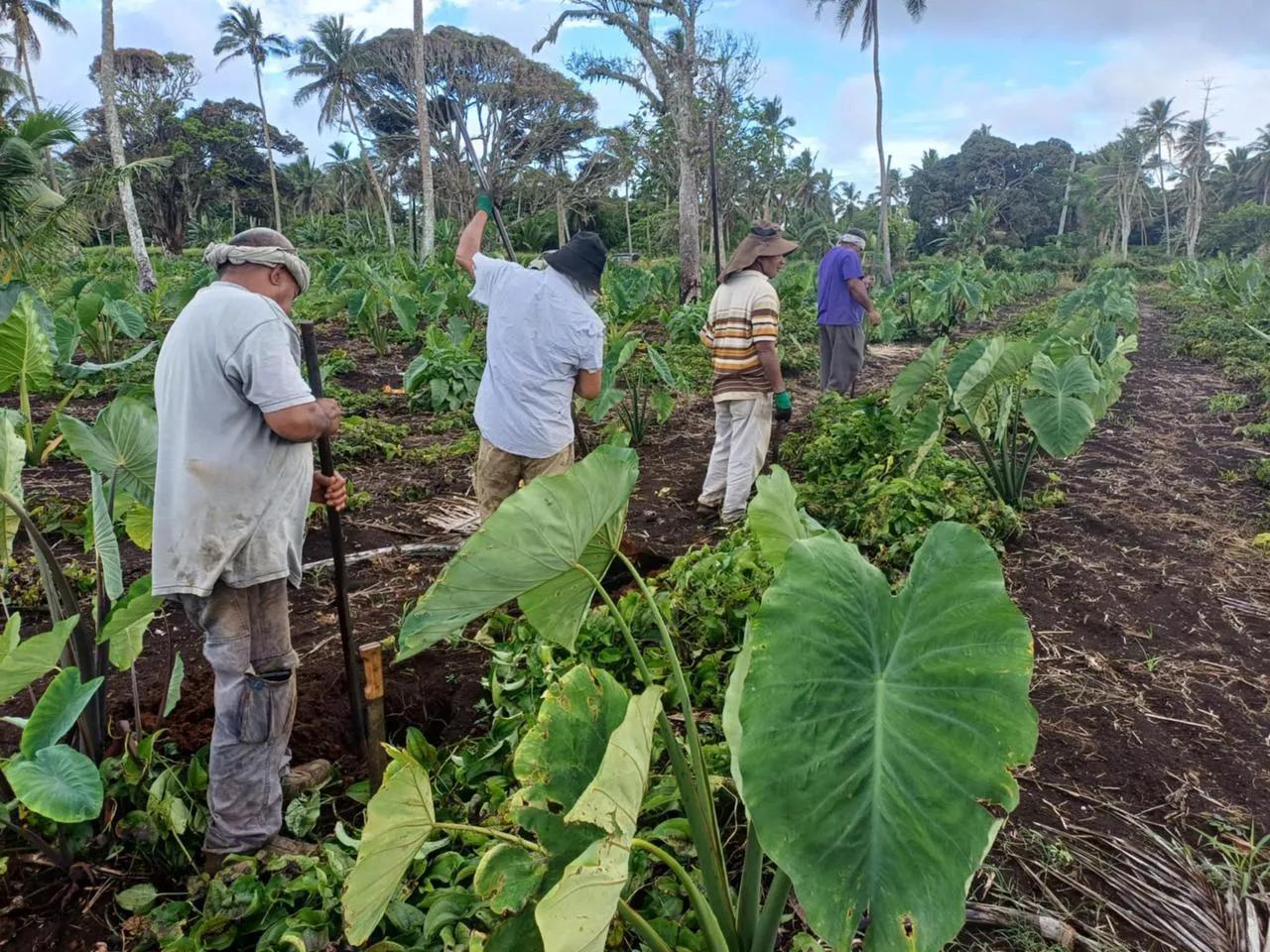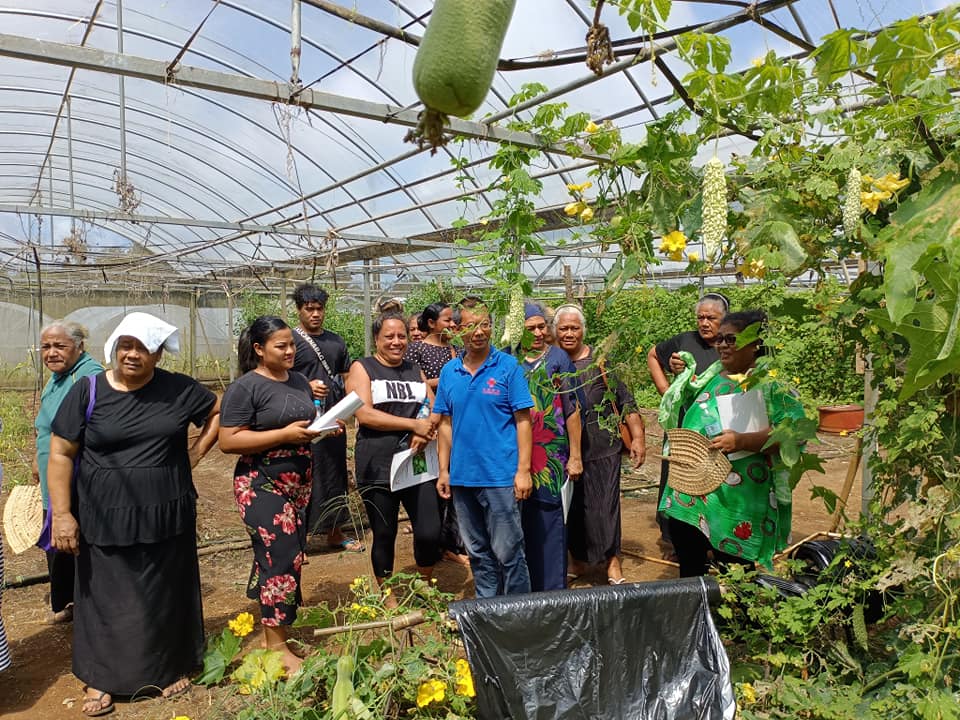

Nearly 90 per cent of Tonga's population resides in rural areas, and most of them are small holder farmers who typically cultivate root crops, providing food security, employment, and income.
Photo/Pacific Community
Tonga bets on China deal to modernise farming ahead of general election
Experts say the move could unlock productivity but implementation, infrastructure, and market compliance will be critical for success.


Moana Pasifika end Lautoka curse to win 'Battle of the Pacific'


A.R.T sets new Pacific music pace with ‘First Thursday’ releases


Moana Pasifika end Lautoka curse to win 'Battle of the Pacific'


A.R.T sets new Pacific music pace with ‘First Thursday’ releases
With its general election just weeks away, the government of the Kingdom of Tonga has quietly approved a new trade‑services partnership framework with China, aiming to convert large parts of the island nation’s subsistence agriculture into commercial‑scale export production.
Acting Prime Minister Dr Taniela Fusimalohi announced that the Cabinet has given the green light to a programme designed to modernise Tonga’s farming methods.
He says the decision is a leap intended to boost the output of sandalwood (ahi), sea cucumbers (mokohunu), and other commodities destined for China’s market.
“This will unlock productivity,” Fusimalohi told a media conference, adding that around 80 per cent of Tonga’s farmers remain engaged in subsistence agriculture.
He says this severely limits the island’s capacity to scale up trade and link into supply chains.
The new framework also marks a continuation and amplification of China’s engagement in the Pacific agricultural sphere.
According to Beijing’s own fact‑sheets, China has also provided technical assistance in agriculture and fisheries to Tonga, Fiji, and Papua New Guinea.
China's Foreign Ministry states that in Tonga’s case, previous Chinese‑supported projects have included pig and poultry breeding, greenhouse fruit cultivation, and demonstration farms.
But Tongan farmers and civil‑society groups say there is a need for local capacity and inclusion: One recent Farmer Field School training programme noted that “investing in the leadership of our farmers is essential for building resilient, sustainable food systems” in Tonga.
According to a United States congressional research summary, “Tonga’s annual repayments to China are near four per cent of GDP and threaten to derail public services and climate priorities.”
What sets the latest Tonga‑China deal apart is the inclusion of trade‑services links and mechanised agriculture, rather than simply aid or technology transfer.
The framework opens the door to China‑linked supply chains and commercial‑scale farming, potentially shifting thousands of Tongan small‑scale farmers into export‑ready production.
At the same time, Tonga’s election context suggests the deal is also politically timed as the government seeks to demonstrate responsiveness to growth and jobs at home.
But analysts warn that the success of the agreement will depend on more than a signature: Tonga will need investment in infrastructure, training, export‑compliance systems, and market‑access if its producers are to meet Chinese standards and deliver volume.
Experts believe that without these supports, the deal may benefit external partners more than local farmers.

Photo/MORDI
China’s Pacific pivot in agriculture and trade
Tonga’s agreement fits into a broader pattern of China expanding its Pacific partnerships well beyond traditional areas of infrastructure.
In May 2025, Chinese Foreign Minister Wang Yi stated that the government would strengthen cooperation with Pacific island countries in agriculture, trade, fisheries and tourism.
Wang described the engagement as part of a “community with a shared future” in the Pacific.
Beijing’s fact sheet also lists dozens of agricultural technical‑assistance projects across the region and emphasises that trade cooperation with Pacific island nations remains a priority.
This reflects China’s strategic interest in securing export markets, commodity access and geopolitical connection in the Pacific.
As one analyst has observed, “Compared with Western countries, China focuses more on the support of sustainable development in island countries”, though the underlying question remains whether this support is aligned with the islands’ terms of engagement.
The road ahead for Tonga
For Tonga, the promise is real: more mechanised farms, greater export earnings, and a farm‑to‑China pipeline where once only subsistence held sway. But the journey will require careful navigation.
Among the key questions are:
Will Tonga’s small‑holder farmers be supported to scale up, or will commercial‑scale operators dominate?
How will supply‑chain and export‑compliance challenges (plant quarantine, certification, logistics) be managed?
How will Tonga balance sovereignty, local benefit and external investment, especially given concerns in the region about transparency and long‑term dependence?

China-Tonga agricultural collaboration tackles food security and health issues. Photo/MAFF/talanoaotonga
Tonga’s vote looms, the agriculture sector is at a turning point, and China’s Pacific trade play is increasing.
The outcome will matter not just for Nukuʻalofa but also for how island nations shape their futures in a changing regional economy.